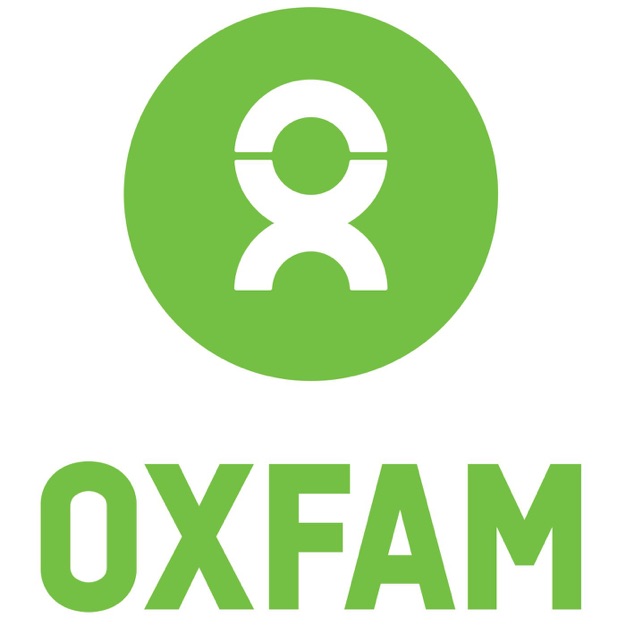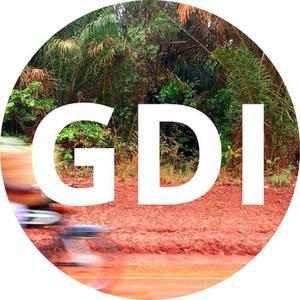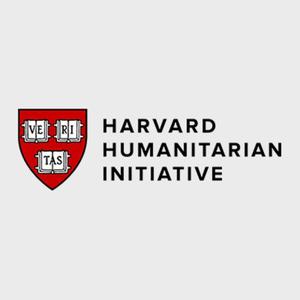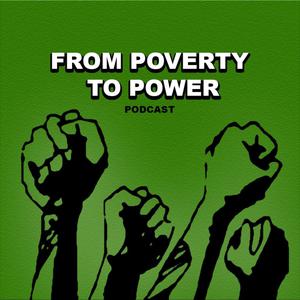
Oxfam Podcast
The Oxfam Podcast
Podcasts which share the learning, knowledge and opinions from Oxfam and the wider development sector. Focussed on the challenges and solutions on the latest issues within humanitarian, development and campaigning work. Topics include inequality, gender justice, economic justice, partnerships, emergency response and more.
- 54 minutes 42 secondsHow can we create Feminist Futures?
This episode hosts a conversation recorded last September 2020 during a virtual encounter around Creating Feminist Futures. María Faciolince, our host and moderator, is joined by three visionary feminists from around the world: Crystal Simeoni (Director at Nawi: Afrifem Macroeconomics Collective), Meera Ghani (Policy coordinator at Ecolise, Co-founder of Moxie Consultancy Collective) and Maria José Moreno (Global Gender Justice Director at Oxfam International).
One of the shared solutions, or antidotes to systems of violence at the root of intersecting inequalities, is to center care. As we ask ourselves how to disrupt this paradigm of carelessness and promote the actions necessary in defence of our collective futures, this exploration engages with some of the following questions: What can care look like in practice? Which principles should underly the narrative of 'building back better' in re-building a post-pandemic feminist future? How can care as a right be articulated in contexts where basic human rights are violated? How do we visibilize care work within organizations?
Tune in to hear what care-centered, justice-oriented feminist futures (and realities) can look like, the potential of the present moment, and how we can develop a vision for a caring future, what it might look like and how we might achieve it.
Stay tuned, subscribe to Power in the Pandemic podcast and follow Power Shifts project on Instagram!
LINKS:
Feminist Futures: Caring for people, caring for justice and rights (paper)
Check out these Power Shifts resource compilations useful for creating feminist futures:
Host and script: María Faciolince
Production and audio editing: Bethany Donkin21 January 2021, 3:00 pm - 25 minutes 48 secondsMeera's Journey: Climate, Covid and Care
"If we want to move away from systems of violence, we have to reimagine a world that centres care." - Meera Ghani
In this final episode of the Climate, Covid and Care series, we hear from Meera Ghani, a climate justice activist, anti-racist and anti-capitalist feminist, and abolitionist from Pakistan. Meera works to support community initiatives with Ecolise and co-founded the Moxie Consultancy Collective to help organisations create transformative change through building a culture of care.
The moment we find ourselves in amid intersecting crises - Covid 19 pandemic, climate breakdown and gender injustice, to name some - is a prime opportunity to think about what care looks like in practice. In this episode, Meera invites us to do just that. She zooms in on the violent systems at the root of these overlapping violences and offers some pointers towards rethinking and re-building systems to create kinder futures, starting from our intimate spaces of action. Taking some examples of the climate crisis in Pakistan, as well as examples of community-led solutions she's encountered through her work, Meera opens a rich discussion highlighting the need to place equity at the centre of work on global climate justice.
Stay tuned, subscribe to Power in the Pandemic and follow Power Shifts project on Instagram!
LINKS:
Read this recent interview with Meera
Follow the Moxie Consultancy Collective on Instagram
Check out these Power Shifts resource compilations to follow up on these topics:
Host and narration: Maria Faciolince
Production and audio editing: Bethany Donkin
Portrait of Meera by Maanya Shar
This series was done in collaboration with the Climate, Covid, and Care: Feminist Journeys zine, a collection of journeys, stories, and ideas from five feminist activists working at the intersection of gender and climate justice.
13 January 2021, 1:00 pm - 25 minutes 1 secondMajandra's Journey: Climate, Covid and Care
"From an ecofeminist perspective, we understand that the sustainability of life should be at the front and centre of our economic system, instead of profit and competition. That means valuing care work. It means valuing low-carbon jobs. It means valuing the sustainability of all life." - Majandra Rodríguez Acha
This is the fourth episode of a mini series, in collaboration with the Climate, Covid, and Care: Feminist Journey's zine which launched on the 24th of August, 2020. This publication is a collection of journeys, stories, and ideas from five feminist activists working at the intersection of gender and climate justice.
In this episode, we hear from Majandra Rodríguez Acha, climate justice and queer feminist activist from Lima, Peru. Majandra’s activism focuses on gender, intersectionality, youth activism and the environment. In this episode, you'll hear Majandra share insights from her work at TierrActiva Perú and FRIDA on building transnational feminist solidarity and helping create new narratives to the ecological crisis geared towards feminist solutions and community-based organising. Listen to her delve into questions around navigating power and privilege, and reflect on the systemic crisis to highlight intersections between different forms of oppression, allowing us to see the direct relation between violence against women's bodies and the environment.
Stay tuned and follow Power Shifts project on Instagram!
Links and resources:
- I am Generation Equality: Majandra Rodriguez Acha, youth leader, climate justice believer (UNWomen)
- Majandra Rodriguez Acha on the Power of Youth and Women in Achieving a Sustainable Future (Global Greengrants)
- In Peru, this young activist is sparking a movement for climate justice (Grist)
- Majandra Rodríguez Acha: the Norms Shifter (On Think Tanks)
- Women's Environment and Development Organization (WEDO)Host and narration: Maria Faciolince
Production and audio editing: Beth Donkin
29 October 2020, 1:00 pm - 17 minutes 59 secondsBetty's journey: Climate, Covid and Care
"Just because the entire world was on lockdown, doesn’t mean that climate change or the patriarchy was on lockdown. The patriarchy is not on lockdown. Climate change cannot be contained" - Betty Barkha
This is the third episode of a mini-series, in collaboration with the Climate, Covid, and Care: Feminist Journey's zine which launched on the 24th of August, 2020. This publication is a collection of journeys, stories, and ideas from five feminist activists working at the intersection of gender and climate justice.
In this episode, we hear from Betty Barkha, a climate activist from Latouka in the Fiji Islands. The Pacific Islands are experiencing the life altering effects of the climate crisis as we speak. Sea levels are rising, increasing intensity of tropical cyclones, saltwater intrusions, coastal erosion, submersion of islands and much more...
Betty offers insight into Pacific Island life and how answers can be found in the leaders and activists in the community. She also discusses the climate justice eco-system, the role of gender in the climate crisis and how Covid has heightened the visibility of issues of climate and gender inequality.
Stay tuned and follow Power Shifts project on Instagram!
Links and resources:
The Civicus AllianceThe Association of Women in Development (AWID)
The Global Resilience Fund for Young Women and Girls
Listen to the Equals Podcast
Host and narration: Maria Faciolince
Production and audio editing: Bethany Donkin
Portrait of Betty by Maanya Shar21 September 2020, 7:00 am - 16 minutes 54 secondsMaggie's Journey: Climate, Covid and Care
"The climate crisis is real for so many communities. Sometimes we don't have the language for it, we can't explain it. But we can feel it in our bodies. We feel it in our land. We see it in the water" - Maggie Mapondera
This is the second episode of a new mini-series, in collaboration with the Climate, Covid, and Care: Feminist Journeys zine which launched on the 24th of August, 2020. This publication is a collection of journeys, stories, and ideas from five feminist activists working at the intersection of gender and climate justice.
In this second episode we hear from Maggie Mapondera, an activist-communicator-facilitator from Zimbabwe, who currently works with WOMIN, an organisation supporting and allying with women impacted by extractivism. Tune in to hear Maggie reflecting on difficult questions around systemic violence and race, climate change and COVID. Listen to how she's working to break down the silos separating these issues, and the importance of grappling with histories of violence to do justice to visions of feminist and climate justice activists today.
Stay tuned and follow Power Shifts project on Instagram!
Links and resources:
Womin - the organisation Maggie works for
An interview with Maggie on Gender IT
Power Shifts ProjectHost and narration: Maria Faciolince
Production and audio editing: Bethany Donkin31 August 2020, 11:00 am - 20 minutes 56 secondsHindou's Journey: Climate, Covid and Care
"You can't speak about us, without us" - Hindou Oumarou Ibrahim
This is the first episode of a new mini-series, in collaboration with the Climate, Covid, and Care: Feminist Journeys zine which launched on the 24th of August, 2020. This publication is a collection of journeys, stories, and ideas from five feminist activists working at the intersection of gender and climate justice.
In this episode, we hear from Hindou Oumarou Ibrahim, an activist from the Indigenous Mbororo community in Chad.
Hindou shares feminist and indigenous approaches to tackle the climate crisis and the COVID-19 pandemic. In a world of multiple crises, she explains the need to integrate both scientific knowledge with what she calls 'Indigenous intelligence' in order to create more sustainable societies. Hindou discusses her approach to climate justice, why indigenous knowledge is constantly evolving with a changing environment, and the opportunities she sees emerging during the pandemic.
Stay tuned and follow Power Shifts project on Instagram!
Links and resources:
Association for Indigenous Women and Peoples of Chad (AFPAT)
International Indigenous Peoples’ Forum on Climate Change (IIPFCC)
Indigenous Peoples of Africa Coordinating Committee (IPACC)
Indigenous knowledge meets science to solve climate change (Hindou on TEDWomen 2019)
Host and narration: Maria Faciolince
Production and audio editing: Beth Donkin26 August 2020, 11:00 am - 29 minutes 10 seconds"Imagine something out of the box" How are young people responding to the pandemic?
How are young people responding to the coronavirus crisis?
What's it like to manage a soap factory during the pandemic?How are young people using the internet to build bridges between generations during lockdowns?
How does this virus exacerbate the ongoing economic crisis and rates of youth unemployment?
Young people's voices are often the last to be heard during a crisis. Young people are rarely deemed the experts and they don't usually hold positions of power in their communities. In this episode, we flip the spotlight. We'll hear the experiences of young people during the coronavirus pandemic and learn how they are harnessing their power to take localised action in their communities in a way that big organisations and governments can't. We'll hear from young people running a blood bank in Pakistan, a Community Conversation Facilitator tackling fake news in Ethiopia and young people volunteering in Bangladesh, Canada, Quebec and Italy.
Find out more about:
The Empower Youth for Work Project
https://www.empoweryouthforwork.org/Apathy is Boring
https://www.apathyisboring.com/Power shifts project
https://oxfamblogs.org/fp2p/category/power-shifts/
Citoyenneté Jeunesse
https://citoyennetejeunesse.org/International Falcon Movement - Socialist Education International
http://ifm-sei.org/Oxfam Italy
https://www.oxfamitalia.org/Oxfam Québec
https://oxfam.qc.ca/Youth Policy Labs
https://www.youthpolicy.org/7 July 2020, 4:00 pm - 30 minutesBreaking Borders, Refugees Imagining a Post-COVID World
How do we imagine a fairer, kinder post-COVID world for refugees and asylum seekers?
It's Refugee Week! To celebrate, we bring you an episode which cuts across borders and hands the mic to two refugee activists who discuss the impact COVID-19 has had on the communities they work with.
We hear from Obai Kurdali who works on peacebuilding and is based in Gaziantep in Turkey, and Loraine Mponela the Chairperson for Coventry Asylum and Refugee Action Group in the UK. Speaking with Shahd Mousalli, Obai and Loraine discuss life as an asylum seeker and refugee in the UK and Turkey, feelings of anxiety and fear amongst refugees which have been exacerbated during the pandemic, INGOs role in the war economy and how a fairer world could be imagined for refugees and asylum seekers post-COVID.
More about our speakers:
Obai Kurdali is a Syrian activist based in Gaziantep Turkey since 2015. Obai has started working in the field of building peace bridges since 2013. He joined the Peace Ambassadors Team of Mobaderoon association and co-founded the Non-violent behaviours initiative, which supports youth in developing Non-violent mechanisms. Currently, Obai is leading the network of My Home Is Your Home, which seeks to maintain and enhance solidarity and synergy among different refugee communities during COVID19.
Loraine Mponela is from Malawi and has lived in the UK for 12 years. She is the current Chairperson for Coventry Asylum and Refugee Action Group (CARAG). Lorraine’s educational background is in Public Health and she co-founded Malawi Public Health Forum (MPHF), a platform that seeks to engage politicians and advocate for people's rights in relation to health.
Links and resources
Read Loraine's recent article>> The Impact of COVID-19 Government Measures on Asylum SeekersCheck out >> My Home is your Home Facebook network
Coventry Asylum and Refugee Action Group (CARAG)
Join the (hashtag) StatusNow Campaign and sign the petition to put pressure on the government to give leave to remain to undocumented migrants and asylum seekers that have been failed by the system.17 June 2020, 8:00 am - 32 minutes 47 secondsFeatured voice: Robtel Neajai Pailey on racism in development
Let’s talk about racism and development.
Dr Robtel Neajai Pailey is a Liberian academic, activist and author.In this conversation, Maria and Robtel talk about development as a racist construct. They discuss the 'decolonial turn', systems of power and decision-making that uphold racism, and Robtel asks us: how complicit are we all in upholding the notion that whiteness (often geographically equalled to 'northerness') is our only reference of progress?
Recorded last year at the Development Studies Association Conference, where Robtel gave her keynote Speech on Decentering the 'White Gaze' of Development. This discussion is as relevant as ever in the current climate of Black Lives Matter and the anti-racism protests seen all over the world. However, racism in development is not a new issue, so why has it been overlooked?
In this blog you can read some key take-aways from the episode: Does development have a problem with racism?Other links:
Robtel's website
Robtel's article: Decentering the 'White Gaze' of Development
Keynote speech from the Development Studies Association Annual Conference 201912 June 2020, 11:00 am - 23 minutes 12 secondsLiving on a Resettlement Camp During a Pandemic
Coronavirus has brought up new challenges locally and globally, how do these challenges affect refugees and internally displaced people living on resettlement camps?
How has the Coronavirus made a difficult and precarious living situation more complicated for internally displaced people and refugees? What is it like to live through this pandemic in a camp setting? And what are community members, organizations and governments doing to build community’s resilience and preparedness in camps?We hear from YPSA in Cox's Bazar, Bangladesh and a resident of Sittwe Camp in Myanmar. How is information being disseminated about Coronavirus and how are people adapting to social distancing? We also hear from Jordan's Za'atari Refugee Camp hearing how waste collectors are keeping the camp clean during the lockdown.
Links and resources:
Life Under Lockdown: Keeping Za'atari Refugee Camp clean despite COVID-19
The plight of the Rohingya - Resource from the United States Holocaust Memorial Museum
Find out more about YPSA- Young Power in Social Action who work out of Cox's Bazar
Read more blogs and resources from Power Shifts and Views and Voices
9 June 2020, 9:00 am - 11 minutes 2 secondsFeatured Voice: Duoi talks to farmers about Coronavirus in the Philippines
Duoi takes us out to visit farmers on the Midpulo Unified Agriculture Cooperative to explore how the coronavirus pandemic has affected food systems and farming in the Philippines.
Power in the Pandemic brings you this week's featured voice: Duoi Ampilan, from Mindanao island in the Philippines.
Duoi has been focusing his efforts on changing up food systems to ensure food security at the local level. This is done through the promotion of organic agriculture among small scale farmer. How has the coronavirus pandemic affected these efforts?
In this episode, you'll hear from Duoi, Amiruddin Gani, Ramla Gani and Pabi Gani. They share some of the issues they're facing as coronavirus has hit during the middle of their dry season, making it much more difficult to sell their produce.We'll also hear about the benefits of organic farming, especially during this critical time.
Find out more about Midpulo Unified Agriculture Cooperative on their facebook page.
Explore more blogs and podcasts from Power Shifts and Views and Voices.22 May 2020, 12:00 pm - More Episodes? Get the App
Your feedback is valuable to us. Should you encounter any bugs, glitches, lack of functionality or other problems, please email us on [email protected] or join Moon.FM Telegram Group where you can talk directly to the dev team who are happy to answer any queries.
 ODI live events podcast
ODI live events podcast
 Global Development Institute podcast
Global Development Institute podcast
 ODI podcasts
ODI podcasts
 Harvard Humanitarian Podcast
Harvard Humanitarian Podcast
 Between the Lines
Between the Lines
 From Poverty to Power
From Poverty to Power